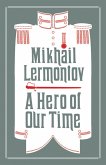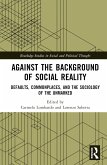Through comparative historical research, this book offers a novel theory explaining the emergence of boredom in modernity. Presenting a Durkheimian topology of cross-cultural boredom, it grounds the sociological cause of boredom in anomie and the perception of time, compares its development through case studies in Anglo and Russian society, and explains its minimal presence outside of the West. By way of illustrative examples, it includes archetypes of boredom in literature, art, film, and music, with a focus on the death of traditional art, and boredom in politics, including strategies enacted by Queer intellectuals. The author argues that boredom often results from the absence of a strong commitment to engaging with society, and extends Durkheim's theory of suicide to boredom in order to consider whether an imbalance between social regulation and integration results in boredom. The first book to scientifically explain the historical emergence and epidemic of boredom while engaging with cutting edge political debates, Towards a General Theory of Boredom will appeal to scholars across the social sciences with interests in social theory, social psychology, and sociology.
"A fascinating attempt to understand a topic about which we are all familiar but rarely consider in its true complexity. The contrast between the Russian and Anglo experiences of "boredom" helps to reveal many of the intriguing ways in which this idea has been defined. In fact, boredom can play radically different roles, from being the stimulus for extraordinary creativity to the cause of despair and self-destruction. This is a highly relevant, important and engaging study." - Professor John Stone, Boston University, USA
"Can boredom infect the whole of a person's life - and that of a culture? Can boredom reach epidemic proportions? Weaving literature, art, politics, and philosophy, Elina Tochilnikova's novel study offers a powerful and cross-cultural reading of boredom's place within modern society." - Professor Peter Toohey, University of Calgary, author of Hold On: The Life, Science and Art of Waiting and Boredom: A Lively History
"Dr. Tochilnikova's book could not be more timely. In an era when the corona virus is requiring millions of people to self-quarantine, to have limited contact with other people and to have less work to engage us, her book gives us insight into the sociological bases of boredom. Turns out we are not equally bored around the world! Find out why. Read the book." - Professor Susan Eckstein, Boston University, USA
"Can boredom infect the whole of a person's life - and that of a culture? Can boredom reach epidemic proportions? Weaving literature, art, politics, and philosophy, Elina Tochilnikova's novel study offers a powerful and cross-cultural reading of boredom's place within modern society." - Professor Peter Toohey, University of Calgary, author of Hold On: The Life, Science and Art of Waiting and Boredom: A Lively History
"Dr. Tochilnikova's book could not be more timely. In an era when the corona virus is requiring millions of people to self-quarantine, to have limited contact with other people and to have less work to engage us, her book gives us insight into the sociological bases of boredom. Turns out we are not equally bored around the world! Find out why. Read the book." - Professor Susan Eckstein, Boston University, USA








